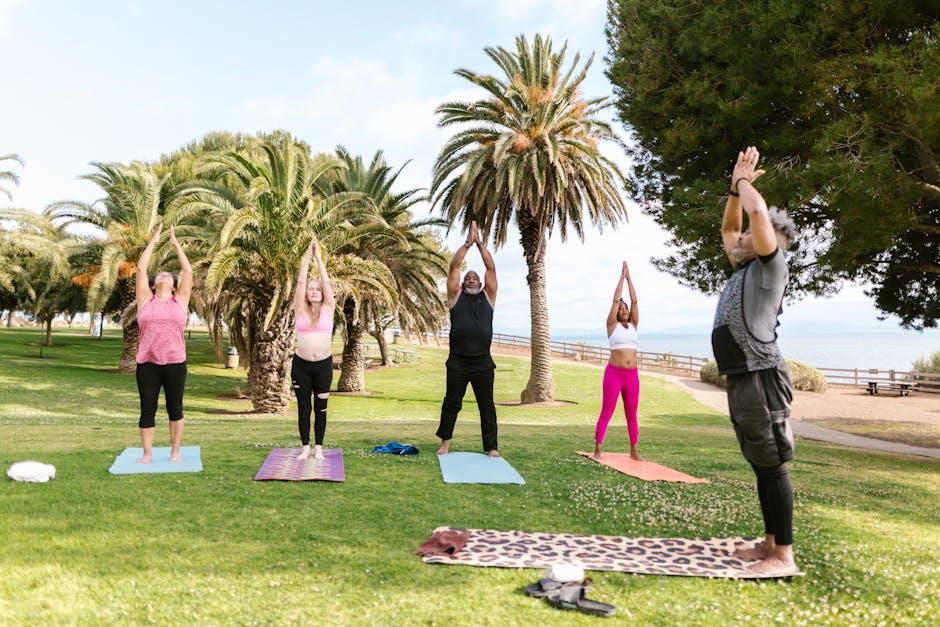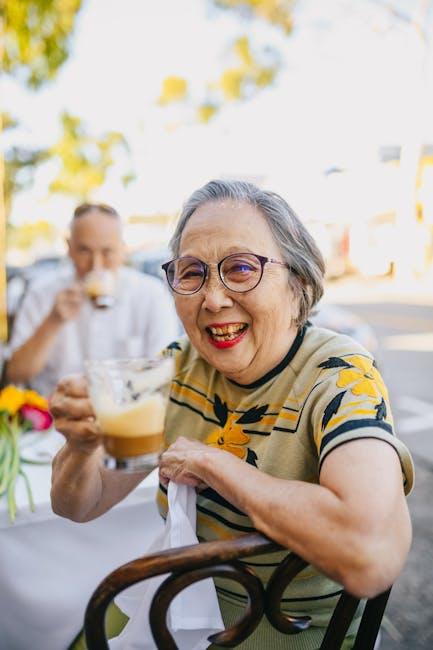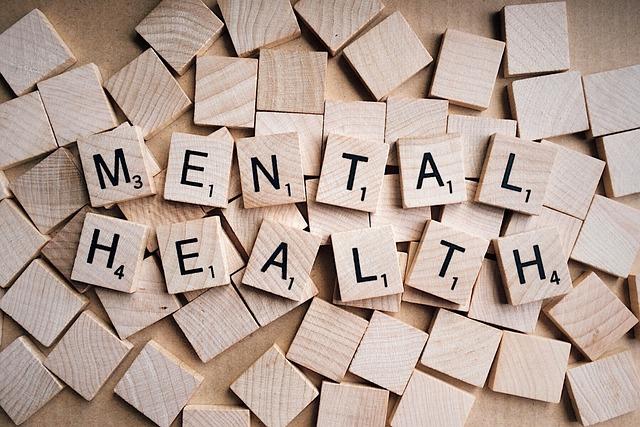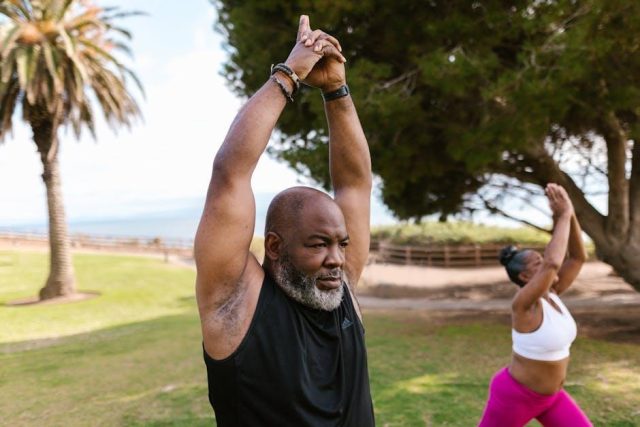As we navigate the complexities of modern life, it’s essential to remember that seniors, too, face unique challenges that can impact their mental health. In a world that often focuses on the young and new, the emotional well-being of our elders may not always be given the attention it deserves. Yet, as the pillars of our families and communities, supporting the mental health of seniors is not only a gesture of kindness but a duty that enriches us all. This article aims to illuminate the most effective and compassionate ways to support seniors as they age, offering practical strategies designed to foster mental resilience and joy. Whether you’re a caregiver, family member, or community leader, understanding these key approaches ensures we honor and uplift the senior members of our society with the respect and dignity they have earned. Let us explore these methods together, united in our goal to create an environment where seniors can thrive emotionally, feeling valued and connected.
Understanding the Unique Mental Health Needs of Seniors
The mental well-being of seniors requires special attention, reflecting their unique life experiences, challenges, and changes. As they transition into later stages of life, they often encounter circumstances that influence their mental health, such as retirement, loss of loved ones, and evolving physical abilities. Recognizing these conditions allows for better support systems and resources tailored specifically to their needs.
Key Strategies to Support Seniors’ Mental Health:
– Promote Social Connection: Encourage regular interactions with family and friends through in-person visits, phone calls, or digital tools like video chats. Engaging in community groups or clubs can also build a sense of belonging and purpose.
– Provide Access to Mental Health Services: Ensuring seniors have easy access to therapists who specialize in geriatric mental health, as well as promoting awareness of senior-focused mental health programs, is crucial.
– Encourage Physical Activity: Regular exercise has been shown to improve both physical and mental health. Simple activities like walking, gardening, or gentle yoga can significantly boost mood and reduce symptoms of anxiety or depression.
- Support Lifelong Learning: Encouraging seniors to engage in new hobbies or educational opportunities stimulates the brain and fosters cognitive health.
| Seniors’ Needs | Suggested Activities |
|---|---|
| Social Engagement | Coffee club meetings, art classes |
| Physical Activity | Chair aerobics, swimming |
| Cognitive Stimulation | Book clubs, online courses |

Creating a Safe and Nurturing Environment for Seniors
To nurture a space where seniors feel safe and valued, it’s essential to prioritize their emotional and psychological well-being. This requires empathetic communication and a mindful approach to their environment. Foster connections by encouraging family, friends, and community members to take part in regular visits and offer companionship. Human interaction is crucial for mental health, so creating networks that facilitate frequent socialization can ease feelings of isolation.
- Encourage Participation: Encourage seniors to engage in activities they love, be it gardening, painting, or group classes. Participating in hobbies can stimulate cognitive functions and improve mood.
- Design a Comfortable Space: Ensure their living environment is safe, with adequate lighting and easy accessibility. A smoothly flowing layout without obstacles helps to maintain independence and confidence.
Additionally, creating a regular routine can be grounding and reassuring. It offers a sense of stability and predictability, aiding in reducing anxieties about the future. Providing a platform for expression through workshops or casual gatherings allows seniors to articulate their feelings, fostering a deeper sense of self-worth and belonging.
| Activity | Emotional Benefit |
|---|---|
| Weekly Book Club | Enhances cognitive skills and promotes discussion. |
| Art Classes | Stimulates creativity and self-expression. |

Encouraging Social Connections and Community Engagement
- Foster Inter-generational Engagement: Interaction between younger and older generations can offer mutual benefits and foster understanding. Set up community events like storytelling nights, where seniors can share their life experiences with younger participants. Schools can also be encouraged to organize visits to senior homes, allowing students to gather firsthand historical insights from their seasoned elders.
- Leverage Technology to Combat Isolation: Today’s digital age offers various platforms to diminish loneliness among seniors. Teach them how to use video calls and social media to stay in touch with family and friends. Organize workshops within the community for tech literacy, so seniors feel empowered when embracing new online friendships and groups.
- Create Inclusive Community Activities: Organize weekly meet-ups that cater to the interests of seniors, such as book clubs, gardening groups, or crafting circles. These activities not only give them a chance to pursue hobbies but also cultivate a sense of belonging. Better yet, invite them to be key organizers of these events, which reinforces their valuable role within the community.
- Establish Support Networks: Encourage the formation of local support networks where seniors can express their challenges, exchange advice, and feel heard. Such networks can include caregiver circles or mental health discussion groups, all aiming to build a supportive community environment.
| Activity | Purpose |
|---|---|
| Storytelling Nights | Share experiences and engage with youth |
| Tech Literacy Workshops | Promote online communication and reduce isolation |
| Book Clubs | Encourage discussion and foster relationships |
| Support Networks | Provide emotional support and advice exchange |

Promoting Mind-Body Wellness Through Activities and Hobbies
Engaging seniors in activities and hobbies can play a vital role in enhancing their mental health by fostering a sense of purpose and community. It’s important to encourage participation in activities that not only challenge the mind but also nurture the body. Here are some wonderful ideas to integrate into their daily routine:
- Gardening: Beyond the physical activity, tending to plants offers significant therapeutic benefits. It can help improve mood, reduce stress, and provide a sense of accomplishment as they watch their plants thrive.
- Art and Craft: Encouraging art projects, whether painting, pottery, or knitting, stimulates creativity and dexterity. This can lead to improved cognitive function and a decrease in feelings of isolation.
- Gentle Yoga or Tai Chi: Both activities are exceptional for promoting relaxation and balance. Regular practice can enhance flexibility, reduce anxiety, and improve sleep quality.
- Reading Groups: Organizing a book club can foster social connections and encourage lively discussions, which are great for keeping the mind sharp and active.
Creating an environment that supports these activities can be beneficial. Consider crafting spaces that are safe and welcoming for group activities. Here’s a brief guide to what these spaces might include:
| Space Feature | Benefits |
|---|---|
| Natural Lighting | Enhances mood and reduces eye strain |
| Comfortable Seating | Ensures physical comfort for extended sessions |
| Accessible Design | Accommodates mobility aids for safety |
Insights and Conclusions
As we conclude our exploration of the best ways to support seniors’ mental health, remember that the journey involves patience, understanding, and empathy. Each strategy we’ve discussed—from encouraging social connections to promoting physical activity and mindfulness—forms a crucial part of a comprehensive approach to fostering well-being among seniors. It’s important to emphasize that small, consistent actions can lead to significant improvements in the mental health and overall quality of life for our elderly loved ones. Always be attentive, listen actively, and engage with empathy, ensuring that you create a supportive environment where seniors feel valued and understood. Let’s continue to prioritize their mental health, acknowledging their experiences, and cherishing the wisdom they share. By doing so, we not only enhance their lives but enrich our communities with deeper compassion and connection.








































